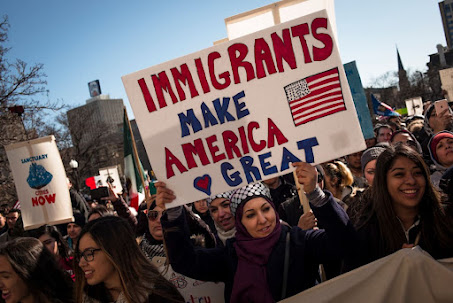What's in a Name? (・・ ) ?
The essay I selected for this immigration journal entry was "Funny in Farsi" The "F Word"" by Firoozeh Dumas (2003). This account discusses an Iranian woman's experience of growing up in America within her Iranian family and the discrimination both her and her family experiences. Specifically, the topic of having a foreign name is discussed throughout Dumas' essay in which she mentions the ignorance and apathy Americans had towards her and her family when it came to the most personable part about a person. Dumas' points out that she knew that "moving to America would be fraught with challenges," but she didn't expect her name to be one of the biggest ones. Throughout her life, she found that Americans would, at best, mispronounce her name or give her a new name entirely, and at worst, turn her name into an insult like "the F Word." In her adolescence and young adulthood, Dumas would eventually give herself an American name of "Julie" as she would be more accepted and approached by fellow Americans and given better treatment. To explain, with this new name others would discuss their xenophobic thoughts towards immigrants, specifically Iranians, and be more inclined to accept her job offers. When Dumas would go by her birth name in America, non-immigrants would hide their true xenophobic feelings around her and jobs would completely ignore her and her qualifications. Later in life, however, Dumas would go back to her birth name as she felt comfortable living in California where people were less judgemental towards immigrants and she already had a job.
This is relevant to our current module as a topic that's been discussed this week is the idea of polarization within America and US wars with the Middle East. To explain further, during the late 21st century, the US had begun to divide itself amongst many ideologies, such as, politics, race, and religion. At the same time, the US began to enter wars in the Middle East after 9/11 and in Afghanistan. These two conflicts combined resulted in further divisions in the US as Americans began to take sides on the extent of immigration and religion. One side was more xenophobic and saw any one that was Middle Eastern, or looked Middle Eastern, as 'other' and began to villainize and discriminate against them. This came from a place of fear and anger as many had died from the 9/11 terrorist attacks and fighting in the Middle East, however, these Middle Eastern immigrants were fellow Americans and had no part in either of these terrible conflicts. The other side was more accepting and understood this fact and welcomed immigrants, even those from countries of conflict, to enter the US. As a result, both sides would raise their hackles and begin to argue the laws of immigration and how much the US should help the countries we currently had conflict with. Xenophobia and discrimination would continue to run rampant, and still does today, in this divided United States.
My thoughts on this particular essay are that American society is still struggling to understand how to approach those that are different from us. Admittedly, we have gotten much better from where we first began with horrific race riots and lynchings, but we still have a ways to go. Even though some people are accepting of others' different backgrounds, they can still be ignorant without meaning to because our lack of communication with each other and internal biases are still in existence. Even more, there are still those who are unwilling to try to understand others and would rather discriminate and stereotype those that they don't understand.
REFERENCES:
Blaisdell, B. (2012). Essays on Immigration (pp. 428-436). Dover Publications Inc.



Comments
Post a Comment